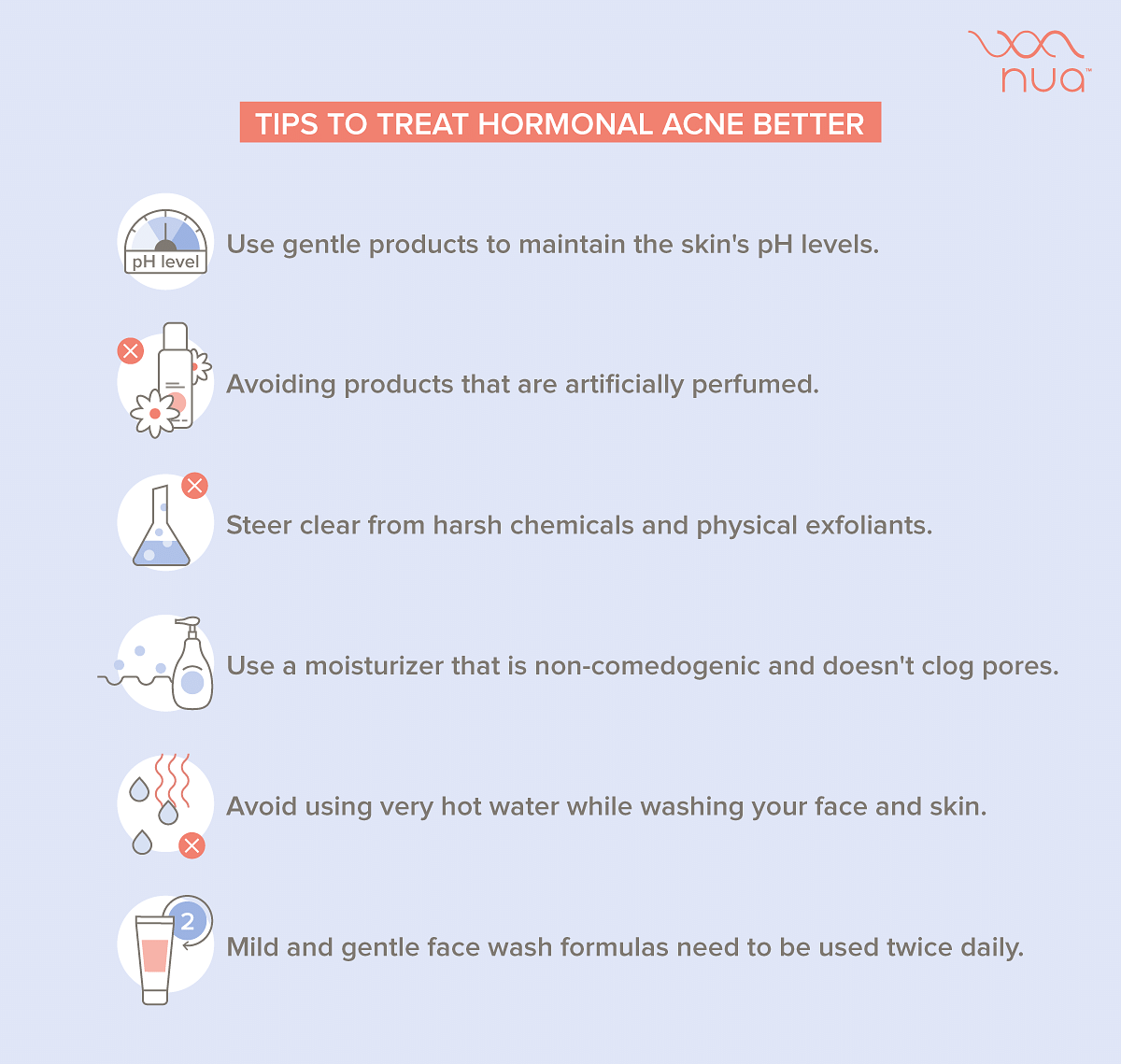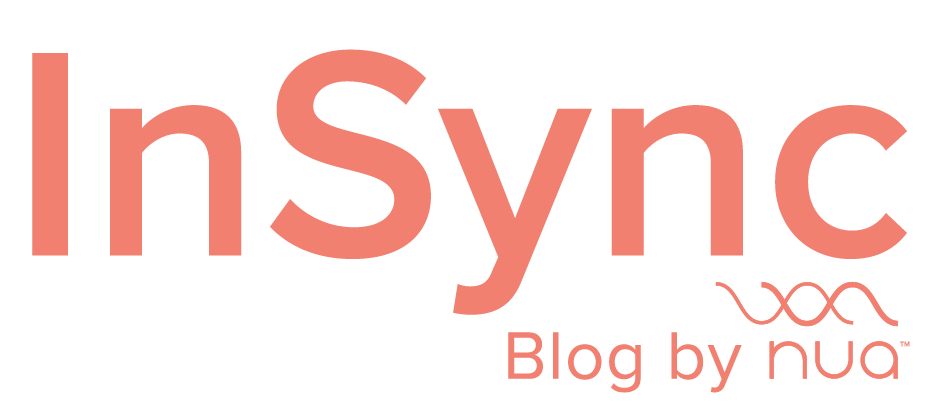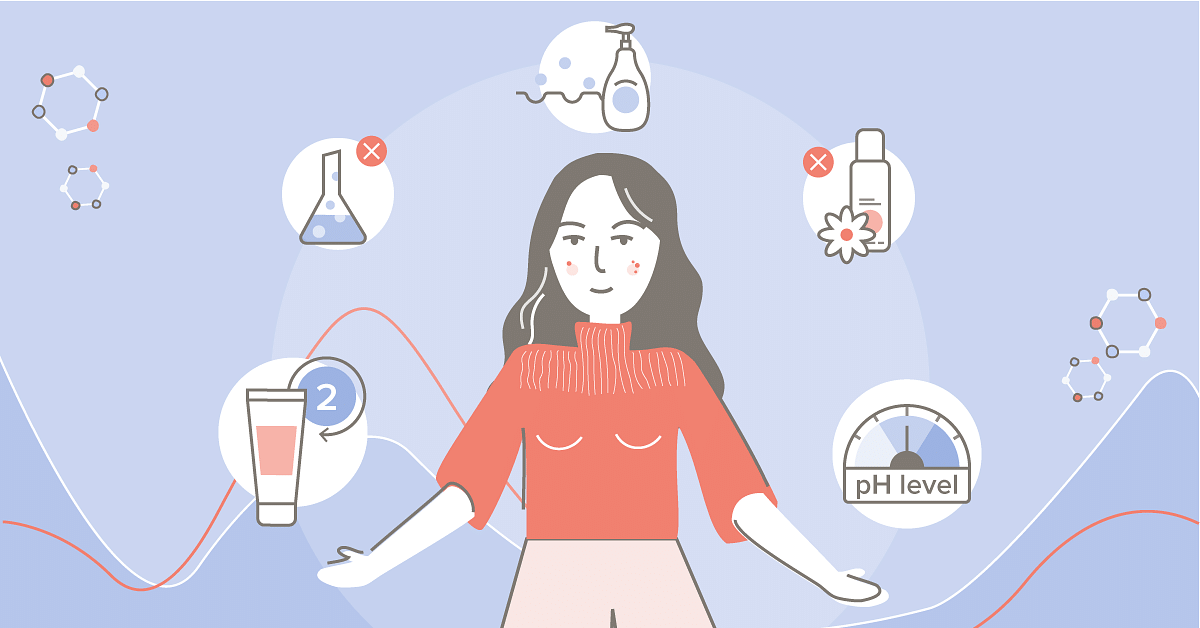Acne caused due to hormonal fluctuations in the body during adulthood is termed hormonal acne. Usually, it is a result of an increase in certain hormones like testosterone and androgens. It is often in the form of red angry hormonal breakouts that can often be deep and very painful. It can result in marks and blemishes and also in the form of blackheads, whiteheads and cysts.
Hormonal acne can be a cause of concern but it most frequently affects women between 20-50 years of age. The lower section of the face such as the jawline and neck are common locations for these pimples, but they can appear anywhere on the face or body.
What causes hormonal breakouts?
Simply put, hormonal acne is brought on by a change in hormone levels. The week before their period, many women encounter this particular sort of cyclical acne. Hormonal acne is not the same hormone-related acne that young teens experience. Hormonal oscillations undoubtedly affect hormonal acne, but a number of other variables, such as food, and stress are also responsible.
Hormones go through a bit of a roller coaster before menstruation. You may also experience hormonal acne during pregnancy, menopause, or in conditions such as PCOS. The skin produces more oil when certain hormones, primarily testosterone, cause a surge which results in inflamed acne, blocked pores, and oily skin.
Foods with a high glycemic index, often known as highly processed carbs and sugars, can make you have a horrible breakout since they can induce inflammation and activate oil glands.
Supplements or powders containing creatine, an amino acid can also contribute to hormonal acne flare-ups. Stress also causes outbreaks since stress produces Cortisol which causes the skin to produce more oil and frequently causes acne.
Some other hormonal acne and hormonal breakout triggers can be through certain medications such as testosterone therapy, steroids, and birth control, along with anxiety and lack of sleep.
Ingredients that help treat hormonal acne
When it comes to hormonal acne there are two ways that can help.
1) Lifestyle changes: Reducing stress levels, getting an optimum level of sleep, and ensuring that you are taking a properly balanced diet.
2) The other thing is incorporating skin care products that contain ingredients that can help with hormonal acne. There are quite a few ingredients available in the market that are known to help combat hormonal acne so let’s get into them.
- Benzoyl peroxide is an effective ingredient that reduces inflammation and bacteria. It is advisable to incorporate it into your routine if struggling with hormonal acne.
- Prescription retinoids are also highly effective as it regulates the oil glands and reduces flare-ups.
- Salicylic acid can also prove to be very effective as it exfoliates and cleanses the skin, removing dirt and acne-causing bacteria. It can also be used as a spot treatment as it helps reduce active acne as well.
- Topical treatments can be extremely effective. However, if they aren’t working after using them for six to eight weeks, you might want to think about seeing a dermatologist.
- Many dermatologists may combine over-the-counter and prescription drugs since they work so well together.

Suggested routine to combat hormonal acne
Everyone’s skin is different and has varying needs. Discussing your expectations, the severity of your acne, your lifestyle, and how quickly you want to see results will help your dermatologist or esthetician choose the right regimen for you.
Even if you won’t see benefits right away, sticking to a decent skincare routine will pay off in the long run.
In case you are struggling with severe hormonal acne or any kind of acne and you are unable to see any improvement even after using these products, it is a good idea to visit a doctor who can address your concerns.
Treating acne at home is often very hard and using the wrong products can damage your skin further instead of improving it. Your medical esthetician or dermatologist can recommend a proper routine and oral medications for you that will improve the condition of your skin as soon as possible.
Our experts work round the clock to provide you with the answers that you are looking for. If you have any, leave it in the comment section below or send us a DM at @nuawoman. This is a safe space so don’t hold back on any doubts you may have about your body, skin and mind.
Read all of Dr. Pavitra Patel’s articles here.








